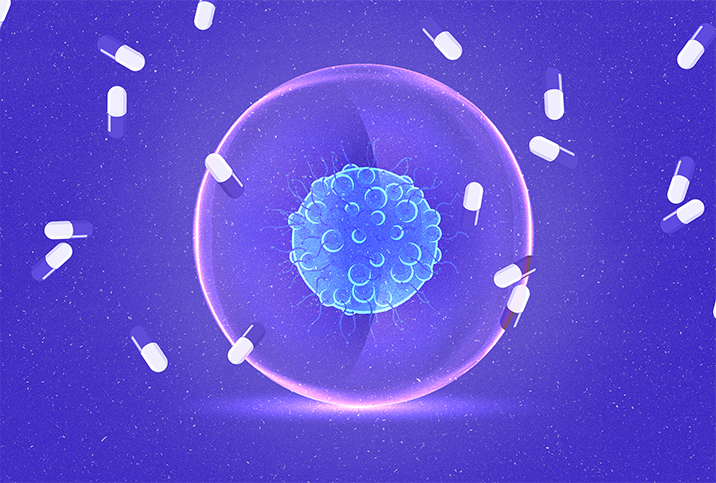Late-Stage Prostate Cancer May Soon Have a Formidable New Foe

Prostate cancer. It's a diagnosis that can cause tremendous trauma in a man's life.
Now add "late stage," and most people are going to assume the worst, usually for good reason. Treatment at that point is typically drastic and carries no guarantee of success.
However, a team at the Institute of Cancer Research, London, with funding from the Prostate Cancer Foundation, is working to change the prognosis via the development of a new drug thought to be capable of stopping the growth of late-stage prostate cancer by targeting how prostate cancer mutates.
Building on work conducted by Cambridge-based CellCentric Ltd. that discovered a targeted drug called CCS1477, the ICR team unveiled the drug's mechanism of action earlier this year.
"The problem is that cancers can evolve to develop changes in the androgen receptor so that it continues to drive growth while avoiding the effects of treatments designed to block its activity," the Prostate Cancer Foundation stated in a news release. "Cancers may stop responding to treatments targeted against androgen signaling—such as abiraterone, which was discovered by the Institute of Cancer Research, and enzalutamide, which the ICR and the Royal Marsden [NHS Foundation Trust] helped develop in clinical trials."
If the new drug can stop the work of androgens—such as testosterone—that fuel cancer growth, and keep them from mutating and adapting, late-stage cancer sufferers would have a better chance of beating the disease. Advanced prostate cancer that has developed resistance to hormone therapy currently has no cure, according to the PCF.
What the researchers did
Researchers first had to determine what to target. They found that a couple of proteins—CBP and p300—were responsible for activating androgen receptor signaling, which can be blocked but is prone to becoming resistant to treatment. With that knowledge in hand, they put CCS1477 to work.
Using cell lines and tumor biopsies from 43 patients in the lab, researchers showed CCS1477 works by binding itself to both cancer gene regulator proteins, and by blocking said proteins, the drug can accomplish two actions: stop prostate cancer's growth and delay or prevent drug resistance.
"Our study offers a potentially exciting new approach to treating prostate cancer," said study leader Johann de Bono, M.D., professor of experimental cancer medicine at the Institute of Cancer Research and consultant medical oncologist at the Royal Marsden, in the release. "For the first time, we have shown that blocking two proteins known as p300 and CBP with a new targeted drug can disrupt signals that help fuel the growth of prostate cancers."
The early research was designed to confirm that blocking the proteins slowed the growth of prostate cancer cells. The team blocked the CBP and p300 proteins, both individually and in tandem, in cells in the lab, as explained in the journal Cancer Discovery. In either scenario, androgen receptor activity decreased and cancer cell growth slowed. When researchers reactivated the proteins, the cancer cells resumed their growth.
"Being able to target both androgen receptor signaling and its adaptions is a huge achievement, as it helps us tackle the huge challenge posed by cancer's ability to evolve resistance to modern hormone treatments," said study author Adam Sharp, M.D., team leader in translational therapeutics at the ICR and consultant medical oncologist at the Royal Marsden, in the release.
Coming soon
Now in phase 1 clinical trials, CCS1477 is being tested in a non-randomized study of about 200 patients with metastatic castration-resistant prostate cancer (mCRPC) or advanced solid tumors. Researchers are testing its efficacy as a stand-alone monotherapy and in conjunction with prostate cancer drugs enzalutamide and abiraterone acetate.
The trial is expected to wrap up in December 2021.


















